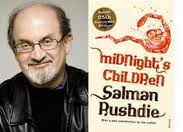The topic will lead to a study of how this colonization has influenced India as a country and affected an Indian identity in its postcolonial and postmodern contemporary.
Joseph Rudyard Kipling
30 dec. 1865 - 18. jan. 1936
Kipling was an English short-story writer, poet, and novelist chiefly remembered for his tales and poems of British soldiers in India, and his tales for children. He received the nobel prize for literature in 1907. Kipling was born in Bombay, and was taken by his family to England when he was 5 years old. Kipling is best known for his works of fiction including The Jungle Book (...), The White Man's Burden (1899)...
Source: Wikipedia.
E. M. Forster
If in anyone's interest you can read the rest of the novel "A Passage to India" or watch the motion picture by the same title.
A Passage to India (1924) is a novel by English author E. M. Forster set against the backdrop of the British Raj and the Indian independence movement in the 1920s. It was selected as one of the 100 greatest works of English literature by the Modern Library and won the 1924 James Tait Black Memorial Prize for fiction. Time magasine included the novel in its "100 Best English-language Novels from 1923-2005. The novel is based on Forster's experiences in India. E. M. Forster borrowed the title from Walt Whitman's poem Leaves of Glass. The story revolves around four characters: Dr. Aziz, his Britisk friend Mr. Cyril Fielding, Mrs. Moore and Miss Adela Quested. During a trip to the Marabar Caves, Adela accusses Aziz of attempting to assault her. Aziz's trial, and its run-up and aftermath, bring out all the racial tensions and prejudices between the indigenous Indians and the British colonists who rule India.
Source: Wikipedia.
Slumdog Millionaire
http://www.foxsearchlight.com/slumdogmillionaire/
Saleem Sinai is born at the stroke of midnight on August 1947, the very moment of India's independence. His every act is mirrored and magnified in events that sway the course of national affairs; his health and well-being are inextricably bound to those of his nation; his life is inseparable, at times indistinguishable, from the history of his country. Perhaps most remarkable are the telepathic powers liking him with India's 1,000 other "midnigh's children", all born in the initial hour and endowed with magical gifts.
Source: http://www.salman-rushdie.com/blog/midnights-children/
Rusdie's own "Introduction" to his novel states an interesting point about post-colonial literature, namely: "In the West people tended to read Midnight's Children as a fantasy, while in India people thought of it as pretty realistic almost a history book" (xv). Why is this?
Source: Wikipedia.
E. M. Forster
If in anyone's interest you can read the rest of the novel "A Passage to India" or watch the motion picture by the same title.
A Passage to India (1924) is a novel by English author E. M. Forster set against the backdrop of the British Raj and the Indian independence movement in the 1920s. It was selected as one of the 100 greatest works of English literature by the Modern Library and won the 1924 James Tait Black Memorial Prize for fiction. Time magasine included the novel in its "100 Best English-language Novels from 1923-2005. The novel is based on Forster's experiences in India. E. M. Forster borrowed the title from Walt Whitman's poem Leaves of Glass. The story revolves around four characters: Dr. Aziz, his Britisk friend Mr. Cyril Fielding, Mrs. Moore and Miss Adela Quested. During a trip to the Marabar Caves, Adela accusses Aziz of attempting to assault her. Aziz's trial, and its run-up and aftermath, bring out all the racial tensions and prejudices between the indigenous Indians and the British colonists who rule India.
Source: Wikipedia.
http://www.foxsearchlight.com/slumdogmillionaire/
Saleem Sinai is born at the stroke of midnight on August 1947, the very moment of India's independence. His every act is mirrored and magnified in events that sway the course of national affairs; his health and well-being are inextricably bound to those of his nation; his life is inseparable, at times indistinguishable, from the history of his country. Perhaps most remarkable are the telepathic powers liking him with India's 1,000 other "midnigh's children", all born in the initial hour and endowed with magical gifts.
Source: http://www.salman-rushdie.com/blog/midnights-children/
Rusdie's own "Introduction" to his novel states an interesting point about post-colonial literature, namely: "In the West people tended to read Midnight's Children as a fantasy, while in India people thought of it as pretty realistic almost a history book" (xv). Why is this?




